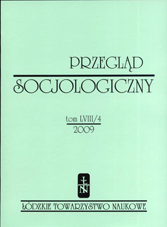Social Contract – Assumptions and Realisation. The case of Łódź
Social Contract – Assumptions and Realisation. The case of Łódź
Author(s): Agnieszka Golczyńska-Grondas, Agnieszka Kretek-KamińskaSubject(s): Social Sciences
Published by: Łódzkie Towarzystwo Naukowe
Keywords: social contract; social work; barriers in social works; apparent actions in social work
Summary/Abstract: One of the basic tools used in social work in the majority of European countries is the social contract. It is an agreement between the social worker and the individual client (or family) which precisely stipulates mutual obligations, requirements, rights and responsibilities of both sides. The contract is intended to be an effective method of diagnosing client’s problems and to mobilize both sides to more intensive efforts to enable a client to have more personal control. However, in the everyday practice of social work and its legal and institutional context, there are various constraints and barriers that may lead to distortion of the assumptions of a contract. It happens that the contract serves social workers and their clients as an instrument to realize interests and goals different from the intended. In this article, ways to implement the social contract in Poland are suggested, along with conditions and limitations.
Journal: Przegląd Socjologiczny
- Issue Year: 58/2009
- Issue No: 4
- Page Range: 71-93
- Page Count: 23
- Language: English

